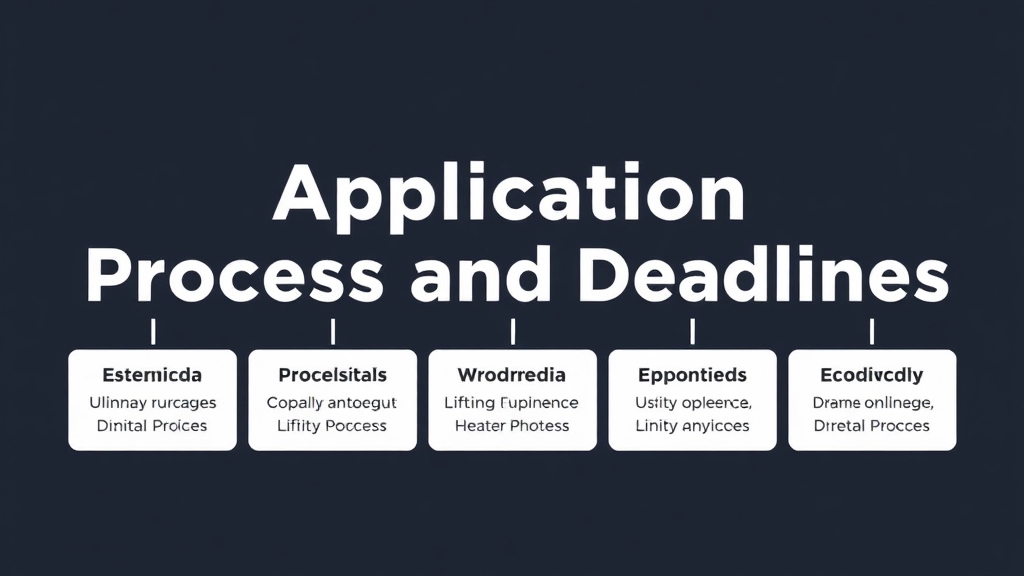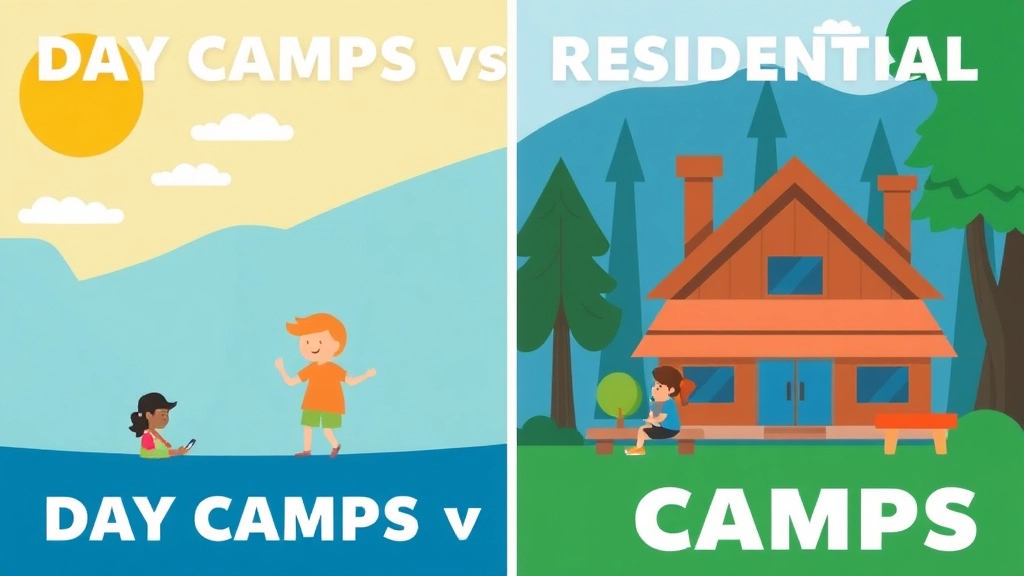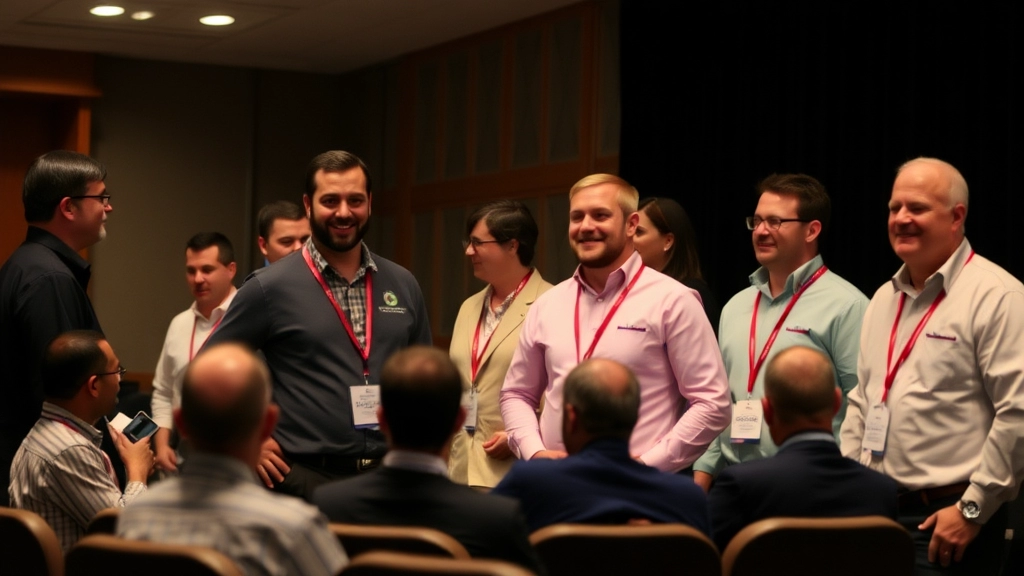Math Camps Summer 2024
As the summer of 2024 approaches, math enthusiasts are gearing up for an unforgettable experience at some of the top math camps. These camps offer more than just number crunching; they provide a unique blend of learning, fun, and personal growth. From expert instructors to engaging activities, there’s something for every aspiring mathematician. Whether you’re looking to boost your math skills or make lifelong friends, these camps have it all.
Choosing the Right Math Camp
Choosing the right math camp can be daunting, but understanding the benefits, application process, and available financial aid can make it easier. Our guide explores everything from day camps to residential options, ensuring you find the perfect fit.
What to Expect
With success stories from past attendees and insights into the curriculum, you’ll be well-prepared for an enriching summer. Dive into Math Camps Summer 2024 and discover the opportunities waiting for you!
Top Math Camps for Summer 2024
Are you looking for the best math camps for your child this summer? You’re not alone. Many parents are on the hunt for the perfect summer camp that combines fun with learning. So, let’s dive into the top math camps for Summer 2024. These camps aren’t just about crunching numbers; they’re about building confidence, making friends, and igniting a passion for mathematics.
MathPath
MathPath is a premier camp for middle school students who have a knack for math. Here, kids dive deep into advanced topics like number theory and combinatorics. The camp also offers a mix of activities, from problem-solving sessions to recreational sports.
Why it’s awesome:
- Expert instructors: Learn from top mathematicians and educators.
- Diverse curriculum: Covers a range of topics not usually taught in schools.
- Community: Meet like-minded peers who love math as much as they do.
PROMYS (Program in Mathematics for Young Scientists)
PROMYS is a well-known camp for high school students with a strong interest in mathematics. Held at Boston University, PROMYS focuses on number theory and fosters a rigorous academic environment.
Why it’s awesome:
- Intensive curriculum: Get ready for a deep dive into mathematical concepts.
- Research opportunities: Work on projects that could lead to published papers.
- Networking: Connect with peers and mentors who are passionate about math.
Canada/USA Mathcamp
This camp is a five-week summer programme for high school students. It’s held at different locations each year, making it a unique experience every time. The camp covers a wide range of topics, from abstract algebra to topology.
Why it’s awesome:
- Flexible curriculum: Choose your own classes based on your interests.
- Guest speakers: Learn from renowned mathematicians and professors.
- Collaborative environment: Work on challenging problems with your peers.
Ross Mathematics Program
The Ross Program is one of the oldest and most respected math camps. It focuses on number theory and is open to high school students who are ready for a challenge. Held at Ohio State University, the camp emphasises rigorous thinking and problem-solving.
Why it’s awesome:
- Long history: Over 60 years of excellence in math education.
- Intense focus: Spend six weeks immersed in mathematics.
- Supportive community: Build lasting friendships with fellow math enthusiasts.
Stanford University Mathematics Camp (SUMaC)
SUMaC offers high school students the chance to explore advanced mathematical topics. Held at Stanford University, this camp provides a mix of lectures, problem-solving sessions, and research projects.
Why it’s awesome:
- World-class faculty: Learn from Stanford professors and researchers.
- Research opportunities: Work on projects that could lead to new discoveries.
- Beautiful campus: Experience life at one of the world’s top universities.
AwesomeMath Summer Program
AwesomeMath is designed for high-achieving students who want to excel in math competitions. The camp offers a rigorous curriculum that covers topics like algebra, geometry, and combinatorics.
Why it’s awesome:
- Competition prep: Get ready for math contests like the AMC and AIME.
- Experienced instructors: Learn from coaches who have trained math Olympiad teams.
- Interactive learning: Participate in hands-on activities and group projects.
Epsilon Camp
Epsilon Camp is for younger students, ages 7-11, who show exceptional mathematical ability. The camp offers a nurturing environment where kids can explore advanced topics in a fun and engaging way.
Why it’s awesome:
- Age-appropriate curriculum: Tailored to the needs of young math prodigies.
- Parental involvement: Parents attend workshops to support their child’s learning.
- Fun activities: Mix of math and recreational activities to keep kids engaged.
If your child is interested in a broader range of activities, you might also want to check out our top summer camps for teens or explore the benefits of summer sports camps. There’s a camp out there for every interest and age group!
Benefits of Attending Math Camps

Ever wondered if math camps are worth it?
You’re not alone.
Let’s dive into the real benefits of attending math camps for summer 2024.
1. Boost Your Math Skills
First off, these camps are an excellent way to sharpen your math skills.
You get to tackle complex problems and learn new concepts.
2. Meet Like-Minded People
You’ll meet other math enthusiasts just like you.
It’s a great way to make friends who share your interests.
3. Learn from the Best
Top math camps often feature expert instructors and guest speakers.
Imagine learning from someone who’s a pro in their field.
4. Hands-On Experience
Math camps aren’t just about sitting in a classroom.
You’ll get hands-on experience with real-world applications.
5. Build Confidence
Struggling with math can knock your confidence.
These camps help you build it back up by mastering challenging topics.
6. College Prep
Thinking about university?
Math camps can give you a leg up.
They look great on college applications and can even prepare you for advanced courses.
7. Fun and Engaging Activities
Math camps aren’t all work and no play.
Expect fun activities that make learning enjoyable.
8. Problem-Solving Skills
You’ll enhance your problem-solving skills, which are useful in everyday life.
9. Networking Opportunities
These camps can be a great way to network.
You never know who you’ll meet—maybe future classmates or even future colleagues.
10. Personal Growth
Finally, attending a math camp can be a great way to grow personally.
You’ll learn to work independently and as part of a team.
Real Stories
Take Jamie, for example.
Jamie attended a math camp last summer and saw a massive improvement in their math grades.
They also made friends who they still keep in touch with today.
How to Choose the Right Math Camp
So, you’re thinking about sending your kid to a math camp but don’t know where to start? You’re not alone. Choosing the right math camp can feel like navigating a maze. But don’t sweat it; I’m here to break it down for you.
What Are Your Goals?
First things first, what are you hoping to achieve? Does your child need to brush up on basic skills, or are they looking for a challenge? Maybe they’re eyeing a future in STEM. Knowing your goals will help narrow down your options.
Location, Location, Location
Do you want a camp close to home, or is a travel adventure part of the plan? There are day camps and residential camps, each with its own set of pros and cons. Day camps are great if you prefer to keep your evenings free, while residential camps offer a full immersion experience.
Curriculum and Activities
Not all math camps are created equal. Some focus heavily on theory, while others mix in practical applications. Look for camps that offer a balanced curriculum. Check if they include activities like:
- Hands-on Projects: Real-world applications of math
- Competitions: For those who thrive on a bit of friendly rivalry
- Guest Speakers: Experts who can inspire and guide
Expert Instructors
The quality of instructors can make or break the camp experience. Look for camps that boast qualified teachers and guest speakers. These experts can turn complex concepts into engaging lessons.
Success Stories
Nothing speaks louder than success stories. Check out testimonials from previous attendees. Did they find the camp beneficial? Did it help them achieve their goals? Real stories from real people can offer invaluable insights.
Cost and Financial Aid
Let’s be real; cost is a big factor. Some camps can be pricey, but many offer scholarships and financial aid. Don’t let cost deter you from considering top-notch options. Investigate all financial aid opportunities to make an informed decision.
Application Process and Deadlines
Every camp has its own set of application procedures and deadlines. Be sure to mark these dates on your calendar. Missing a deadline can mean missing out on a great opportunity.
Day Camps vs. Residential Camps
This choice often boils down to personal preference. Day camps are typically less expensive and allow kids to return home each evening. Residential camps, on the other hand, offer a more immersive experience but come with a higher price tag.
What to Bring and Expect
Preparation is key. Make sure your child knows what to bring and what to expect. This can range from academic materials to personal items like bedding and toiletries for residential camps.
For more tips on choosing the right camp, check out our Ultimate Guide to Kids Summer Camps. If you’re looking for specific options, our list of Top Summer Camps for Teens might be helpful.
Application Process and Deadlines

Ever wondered how to get into a top math camp for Summer 2024?
You’re not alone.
Let’s break it down, step by step, so you don’t miss a beat.
Why Is the Application Process So Stressful?
First off, the competition is real.
Top math camps attract the best and brightest, so you need to be on your A-game.
But don’t sweat it.
Here’s a straightforward guide to help you navigate the application process.
Key Steps in the Application Process
- Research Early: Start by making a list of the camps you’re interested in. Check their websites for application details and deadlines.
- Prepare Your Documents: Most camps will require:
- Transcripts: Show off those grades.
- Recommendation Letters: Teachers, mentors, anyone who can vouch for your math skills.
- Personal Statement: Why do you want to attend this camp? Be honest and passionate.
- Application Form: Fill out the application form carefully. Double-check for any errors.
- Entrance Exams or Interviews: Some camps may require you to take a test or attend an interview. Prep for these like your future depends on it—because it kinda does.
Deadlines: Don’t Miss Them!
Deadlines are crucial.
Most camps have deadlines in late winter or early spring.
Mark these dates on your calendar and set reminders.
What If You Miss the Deadline?
Missing a deadline can feel like the end of the world, but some camps have rolling admissions or waitlists.
Always check if there’s a second chance.
Pro Tips for a Stellar Application
- Start Early: Don’t leave it until the last minute.
- Seek Feedback: Get someone to review your application before you hit submit.
- Be Authentic: Camps want to see the real you, not a cookie-cutter version.
Real Talk: Stories from Past Applicants
Sarah, a previous attendee, said she almost missed her deadline because she procrastinated.
She ended up pulling an all-nighter but got in because her application was genuine and heartfelt.
Lesson? Don’t wait until the last minute, but if you do, make it count.
Got more questions?
Check out our FAQs on Math Camp Applications or Success Stories from Previous Attendees.
Good luck, and may the math odds be ever in your favour!
Scholarships and Financial Aid Options
Are you worried about the cost of sending your child to a top-notch math camp? You’re not alone. Many parents share the same concern. But don’t let financial constraints hold you back. There are scholarships and financial aid options available that can make these camps more affordable. Let’s dive in and break it down.
Types of Scholarships Available
First things first, what types of scholarships are out there? Here’s a quick rundown:
- Merit-Based Scholarships: These are awarded based on your child’s academic achievements, particularly in mathematics. If your kid has stellar grades or has won math competitions, this is the way to go.
- Need-Based Scholarships: These are designed for families who need financial assistance. You’ll likely need to provide proof of income and other financial documents.
- Diversity Scholarships: Some camps offer scholarships to promote diversity. This can include ethnic diversity, gender diversity, or even geographic diversity.
- Special Interest Scholarships: Some organisations offer scholarships for students interested in specific areas of mathematics, like algebra, geometry, or even coding.
Financial Aid Options
Besides scholarships, there are other financial aid options you can explore:
- Payment Plans: Some camps offer flexible payment plans that allow you to pay the fee in instalments rather than a lump sum.
- Grants: Look for grants offered by educational organisations or local community groups.
- Sponsorships: Sometimes, local businesses or community organisations are willing to sponsor a student for educational purposes.
How to Apply for Scholarships and Financial Aid
The application process for scholarships and financial aid can be a bit daunting, but here are some steps to make it easier:
- Start Early: Deadlines can sneak up on you, so start your research early.
- Gather Documentation: Have your child’s academic records, financial documents, and any other required paperwork ready.
- Write a Compelling Essay: Many scholarships require an essay. Make it compelling and personal.
- Get Recommendations: Letters of recommendation from teachers or community leaders can make a big difference.
- Apply to Multiple Sources: Don’t put all your eggs in one basket. Apply to as many scholarships and financial aid programmes as possible.
Real-Life Example
Let me share a quick story. I remember a parent who was really stressed about affording a prestigious math camp for their kid. They applied for multiple scholarships and even reached out to local businesses for sponsorships. In the end, they managed to cover almost the entire cost of the camp through various financial aid sources. Their child not only attended the camp but also thrived, winning a regional math competition the following year.
For more information on how to make summer camps affordable and enjoyable, check out our guide on free summer camps in 2024 and our ultimate summer camp packing checklist.
Day Camps vs. Residential Camps

Wondering if a day camp or residential camp is the right fit for your young mathematician?
Let’s break it down.
Day Camps:
Day camps are perfect if you want to dip your toes into the world of math camps without a long-term commitment.
Benefits:
- Flexibility: Kids come home every night, which means they can still enjoy family time.
- Local: Usually, these camps are close to home, so no need for long travel.
- Cost-effective: Typically, these are cheaper than residential camps because you’re not paying for accommodation and meals.
Considerations:
- Limited immersion: Your child might not get the full “camp experience” since they’re not staying overnight.
- Daily commute: Depending on where you live, the drive back and forth could be a hassle.
Residential Camps:
On the flip side, residential camps offer a more immersive experience.
Benefits:
- Full immersion: Your child lives and breathes math for the duration of the camp.
- Social skills: Living with other campers fosters independence and teamwork.
- Enrichment: Often, these camps offer a wider range of activities beyond just math.
Considerations:
- Cost: These camps can be pricey due to accommodation and meals.
- Homesickness: Especially for younger kids, being away from home can be tough.
- Travel: If the camp is far away, you’ll need to factor in travel logistics.
So, which one is better?
It depends on your child’s needs and your family’s circumstances.
Ask yourself:
- Can my child handle being away from home for an extended period?
- Is the cost within our budget?
- Do we prefer a more intensive experience or something more flexible?
Still unsure?
Reach out to the camps directly. Most are happy to chat and help you figure out the best fit for your child.
Remember: Whether it’s a day camp or a residential camp, the goal is the same—boosting your child’s love for math.
Curriculum and Activities Offered
Alright, let’s get into the nitty-gritty of what you actually do at these math camps. You’re probably wondering, “What am I signing up for?” or “Is it just endless equations and problem sets?” Well, let me break it down for you.
What’s on the Agenda?
Keyword: Curriculum and Activities Offered
First off, these camps are not just about sitting in a classroom all day. The curriculum is designed to be engaging and interactive. Here’s a snapshot of what you can expect:
- Workshops and Lectures: These are not your typical school lectures. Think dynamic presentations on fascinating topics like cryptography, game theory, or even the math behind your favourite video games.
- Problem-Solving Sessions: You get to tackle challenging problems in groups. This isn’t about getting the right answer but understanding the process and learning to think critically.
- Hands-On Projects: From building robots to creating mathematical art, these projects let you apply what you’ve learned in a fun, tangible way.
- Competitions and Challenges: Friendly competitions like math bees or puzzle challenges keep things exciting and let you test your skills against your peers.
Activities Beyond the Classroom
But wait, there’s more! These camps know that all work and no play makes Jack a dull boy. So, they mix in some fun activities to keep you refreshed and engaged.
- Sports and Recreation: Whether it’s a game of football, swimming, or even yoga, there’s something to get you moving.
- Field Trips: Some camps organise trips to places like science museums or tech companies. Imagine getting a behind-the-scenes look at how your favourite gadgets are made!
- Social Events: Movie nights, talent shows, and campfires. These are perfect for making new friends and creating memories that last a lifetime.
Real-Life Examples
Let me share a quick story. A friend of mine attended a math camp where they had a project to design a simple video game using mathematical algorithms. Not only did he learn a ton, but he also discovered a passion for coding that led him to pursue a degree in computer science.
Another attendee I know got so inspired by a guest lecture on cryptography that she went on to intern at a cybersecurity firm. These camps can genuinely shape your future.
Why It Matters
The curriculum and activities offered at these camps are crafted to be more than just educationalâthey’re transformative. You’re not just learning math; you’re learning how to think, how to solve problems, and how to work with others. These skills are invaluable, no matter what career path you choose.
For those interested in exploring more about what summer camps offer, check out our fun activities at summer camp and how they can enhance your experience. Additionally, if you’re curious about the benefits of incorporating sports, our guide on top summer sports camps might be of interest.
Keyword: Curriculum and Activities Offered
Expert Instructors and Guest Speakers

Ever wondered if the instructors at math camps are worth the hype?
I get it.
You’re investing time and money, so you want to make sure you’re learning from the best.
Why Expert Instructors Matter
Let’s be real.
The right instructor can make or break your experience.
Here’s why top-notch instructors are a game changer:
- Experience: They’ve been in the trenches, solving complex problems.
- Teaching Skills: They know how to break down tough concepts.
- Inspiration: Their passion is contagious.
What Makes a Great Instructor?
Not all instructors are created equal.
Look for these traits:
- Credentials: Advanced degrees in Mathematics or related fields.
- Teaching Experience: Years spent in classrooms or tutoring.
- Real-World Experience: Work in industries like engineering, finance, or tech.
Guest Speakers: The Cherry on Top
Guest speakers bring a fresh perspective.
They’re often industry leaders or renowned academics.
Here’s what they add to the mix:
- Real-World Applications: How math is used in different fields.
- Inspiration: Stories of their journey and success.
- Networking: Opportunities to connect with influencers.
Personal Stories: Learning from the Best
I remember attending a math camp where Dr. Jane Doe, a NASA engineer, was a guest speaker.
She shared her journey from being a math enthusiast to working on Mars missions.
It was mind-blowing.
And guess what?
It made me realise the endless possibilities math offers.
Making the Most of It
So, how do you make the most of these expert interactions?
- Ask Questions: Don’t be shy. Engage with them.
- Take Notes: Jot down insights and tips.
- Follow Up: Connect on LinkedIn or send a thank-you email.
Success Stories from Previous Attendees
Ever wondered if attending a math camp can really make a difference? Let’s dive into some real-life success stories that showcase just how transformative these experiences can be.
Turning Struggles into Strengths
Meet Sarah. Before attending a summer math camp, she was struggling with algebra and felt like she just couldn’t keep up. She joined the camp with a lot of hesitation but came out with a newfound confidence. How did she do it?
- Personalised Attention: The small class sizes meant she got the help she needed.
- Interactive Learning: Hands-on activities made abstract concepts easier to grasp.
- Supportive Environment: She wasn’t judged for her questions; instead, she was encouraged to ask more.
By the end of the camp, Sarah not only improved her grades but also developed a genuine love for math.
From Good to Great
Then there’s Alex, a student who was already pretty good at math but wanted to push his boundaries. He attended a residential math camp that offered advanced courses and workshops. What happened next?
- Advanced Curriculum: He got to explore topics like calculus and number theory.
- Expert Instructors: Learning from university professors and industry experts was a game-changer.
- Networking: He met like-minded peers, some of whom he still collaborates with today.
Alex ended up acing his A-levels and is now pursuing a degree in mathematics at a top university.
Overcoming Math Anxiety
Let’s not forget about Mark, who had severe math anxiety. He avoided math like the plague until his parents convinced him to try a day camp focused on reducing math stress. The results?
- Mindfulness Techniques: The camp incorporated mindfulness and stress-relief exercises.
- Gradual Exposure: He started with basic concepts and slowly progressed to more challenging ones.
- Peer Support: Being around others who shared his anxiety made him feel less alone.
Mark now approaches math problems with a calm mindset and is even considering a career in engineering.
Why These Stories Matter
These stories aren’t just feel-good anecdotes; they highlight the real, tangible benefits of attending a math camp. Whether you’re struggling, looking to excel, or dealing with anxiety, there’s a camp out there that can help you achieve your goals.
So, what’s stopping you? Dive into our comprehensive guide on how to choose the right math camp, understand the application process, and explore financial aid options. Your success story could be next.
Curious about the curriculum and activities offered at these camps? Check out our detailed section on Curriculum and Activities Offered to get a sneak peek into what you can expect.
Preparing for Math Camp: What to Bring and Expect
So, you’re gearing up for math camp, huh?
You might be wondering, âWhat do I need to bring?â or âWhat’s it really like?â
Let’s break it down.
What to Bring to Math Camp
Packing doesn’t have to be a headache.
Here’s a quick list to keep you sorted:
- Essentials: Notebooks, pens, and a calculator.
- Tech: Laptop or tablet, if allowed.
- Comfort: Casual clothes, comfy shoes, and a jumper.
- Personal Stuff: Toiletries, any meds, and a water bottle.
- Fun Extras: A favourite book or a puzzle.
What to Expect at Math Camp
Math camp isn’t just about numbers.
It’s an experience.
The Daily Grind
- Morning Sessions: Dive into problem-solving and theory.
- Afternoon Workshops: Hands-on activities and projects.
- Evenings: Social events or guest speakers.
The People
You’ll meet:
- Fellow Math Enthusiasts: People who get your passion.
- Expert Instructors: Learn from the best.
- Guest Speakers: Get inspired by real-world stories.
The Vibe
Think of it as a mix of learning and fun.
You’ll tackle challenges but also have a blast.
Real Stories
Like my mate Sarah, who thought she’d be overwhelmed.
By the end, she was solving problems she never thought possible.
And she made friends for life.
If you’re looking for more information on what to bring, check out our detailed summer camp packing list. For those interested in other types of camps, you might find our guide on top STEM summer camps for kids useful.
FAQs about Math Camps Summer 2024
What are the main benefits of attending a math camp?
Math camps offer numerous benefits, such as boosting your math skills, meeting like-minded people, learning from expert instructors, gaining hands-on experience, building confidence, preparing for college, engaging in fun activities, enhancing problem-solving skills, networking opportunities, and personal growth.
How can attending a math camp help with college preparation?
Math camps can significantly aid in college preparation by improving your math skills, enhancing your college applications, and preparing you for advanced courses. They also provide opportunities to learn from expert instructors and meet future classmates or colleagues.
What is the difference between day camps and residential camps?
Day camps offer flexibility, local convenience, and are cost-effective, but they provide limited immersion. Residential camps provide full immersion, foster social skills, and offer a wider range of activities but can be more expensive and may cause homesickness.
What should I consider when choosing between a day camp and a residential camp?
Consider factors such as your child’s ability to handle being away from home, your budget, and whether you prefer a more intensive experience or something more flexible. Both types of camps aim to boost your child’s love for math.
What makes expert instructors at math camps so valuable?
Expert instructors bring experience, teaching skills, and inspiration. They often have advanced degrees, teaching experience, and real-world experience in fields like engineering, finance, or tech, making them invaluable for students.
What should I look for in a great instructor at a math camp?
Look for instructors with advanced degrees in Mathematics or related fields, extensive teaching experience, and real-world experience. These traits ensure they can effectively teach and inspire students.
How do guest speakers enhance the math camp experience?
Guest speakers, often industry leaders or renowned academics, provide real-world applications of math, share inspiring stories, and offer networking opportunities. They bring a fresh perspective and enrich the learning experience.
What are the key steps in the application process for math camps?
Key steps include researching camps early, preparing necessary documents (transcripts, recommendation letters, personal statements), filling out the application form carefully, and preparing for any entrance exams or interviews.
When are the application deadlines for math camps?
Most math camps have deadlines in late winter or early spring. It’s crucial to mark these dates on your calendar and set reminders to avoid missing them.
What should I do if I miss the application deadline?
If you miss the deadline, check if the camp has rolling admissions or waitlists. Some camps may offer a second chance, so always inquire about alternative options.
How can I ensure my application stands out?
Start early, seek feedback on your application, and be authentic. Camps want to see the real you, not a cookie-cutter version. Genuine and heartfelt applications are often more successful.
References
-
National Council of Teachers of Mathematics – Math Camps
-
Art of Problem Solving – Math Camps
-
Canada/USA Mathcamp

